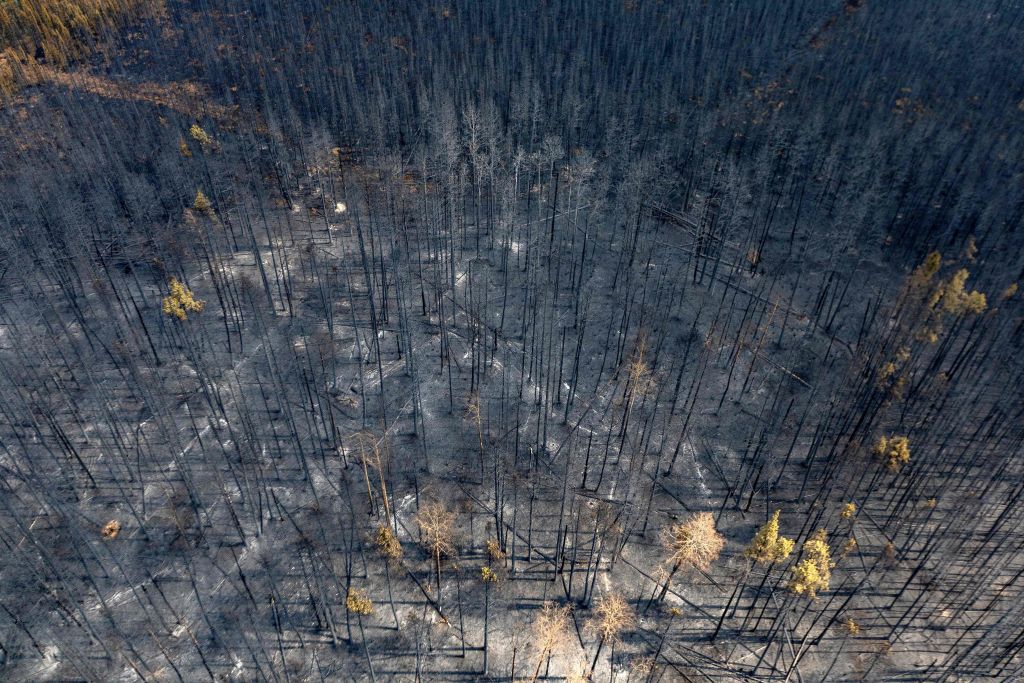
It’s impossible to ignore the impact of climate change as early-season fires rage in western Canada right now. And scientists are getting better and better at calculating the likelihood of a specific event happening because of climate change—such as a drought or heat wave that can exacerbate fire conditions. Now, scientists are also able to pin-point just how responsible the top polluters are for the impact of these wildfires.
According to a new study published May 16 in Environmental Research Letters, 37% of the total area of forest burned in the western U.S. and Canada since 1986 can be linked to the emissions released by the world’s 88 biggest fossil fuel producers and cement manufacturers.
The researchers determined this by looking at the role these companies’ pollution played in creating an ever-hotter world that dries-out vegetation to create tinder-box forest conditions. In the past several decades, everything about wildfires has increased: the amount of land burned, the severity of the burn, the number of large fires, the length of the fire season, and the elevation at which fires are occurring. The study found that since 1901, the 88 companies’ emissions helped drive nearly half (47%) of the increase in the drier conditions that have heightened the risk of these more intense fires across western North America.
The findings add to a growing body of evidence specifically linking the world’s biggest polluters to climate change and its impacts. Previous studies have shown that between 1880 and 2010, carbon emissions from these companies have contributed to more than 40% of the global warming the world has experienced, along with a quarter of all sea level rise, and 50% of ocean acidification.
A version of this story also appears in the Climate is Everything newsletter. To sign up, click here.
As this week’s study emphasizes, the findings underscore “the responsibility these companies bear for the impacts of climate change.” But it’s not just about the amount of forest lost, the researchers note: “These impacts extend far beyond a given fire scar and cause both direct and indirect harm to economies, ecosystems, public health, and communities.”
U.S. federal fire suppression costs, for example, have increased by sevenfold between the late 1980s and 2017, while similar costs in Canada have doubled during that same time.
The researchers hope the findings can be used to hold fossil fuel polluters accountable for these impacts. “Our study offers scientifically backed answers to questions of who bears the responsibility for this gut-wrenching destruction,” said Kristina Dahl, a principal climate scientist at the Union for Concerned Scientists and the report’s lead author. “We’re hopeful that with new evidence in hand, policymakers, elected officials, and legal experts will be better equipped to truly hold fossil fuel companies accountable in public, political, and legal arenas.”
More Must-Reads From TIME
- The 100 Most Influential People of 2024
- Coco Gauff Is Playing for Herself Now
- Scenes From Pro-Palestinian Encampments Across U.S. Universities
- 6 Compliments That Land Every Time
- If You're Dating Right Now , You're Brave: Column
- The AI That Could Heal a Divided Internet
- Fallout Is a Brilliant Model for the Future of Video Game Adaptations
- Want Weekly Recs on What to Watch, Read, and More? Sign Up for Worth Your Time
Contact us at letters@time.com